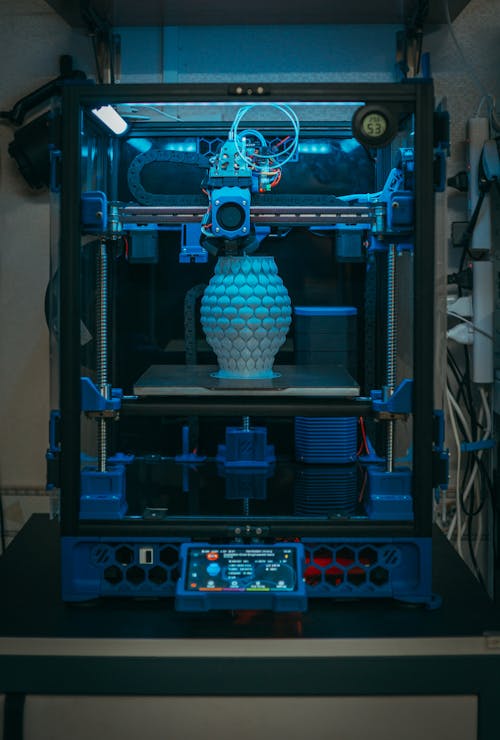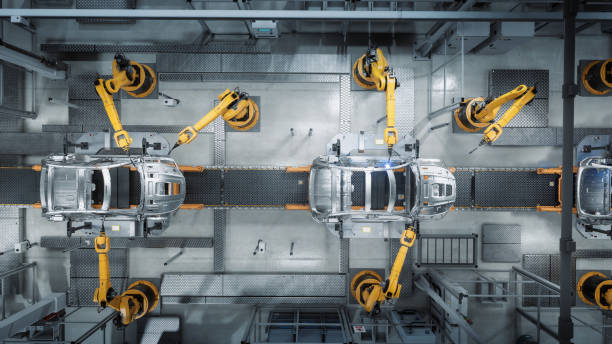The rise of automation—powered by advancements in artificial intelligence (AI), robotics, and machine learning—has been transforming industries across the globe. While automation brings efficiency, cost savings, and innovation, it also raises concerns about its impact on the workforce. As machines and software increasingly take over repetitive and manual tasks, many traditional jobs are at risk of being displaced. However, automation is also creating new opportunities in emerging fields. In this article, we will analyze how automation is affecting the job market, which sectors are most vulnerable to job loss, and what new career opportunities may arise.
The Current State of Automation and Its Impact on Jobs
Automation refers to the use of technology to perform tasks that would typically require human labor. In its most basic form, automation can be as simple as a machine performing a repetitive task in a factory, while in more complex applications, automation can involve machines making decisions, analyzing data, and even interacting with humans.
The impact of automation is already being felt in numerous industries, and its reach is only expected to grow. According to reports by the World Economic Forum and McKinsey, automation could lead to the displacement of millions of jobs globally, particularly in sectors where routine tasks are common. However, it will also give rise to new industries and occupations that focus on technology, creativity, and human skills.
Sectors Most at Risk from Automation
Several industries are particularly vulnerable to automation due to the nature of the work involved. Jobs that are repetitive, manual, or involve basic decision-making are the most likely to be replaced by machines. Here are some of the sectors most at risk:

1. Manufacturing and Production
Manufacturing has long been a hotbed for automation. Robots and automated systems are already replacing assembly line workers in industries like automotive manufacturing, electronics, and consumer goods. Machines can work faster, more efficiently, and without the need for breaks, leading to increased production and reduced labor costs.
At-Risk Jobs:
- Assembly line workers
- Machine operators
- Quality control inspectors
- Warehouse workers (due to robots and automated systems like Amazon’s Kiva robots)
2. Retail and Customer Service
Automation is rapidly transforming the retail and customer service sectors. Self-checkout kiosks, automated ordering systems, and chatbots are replacing many front-line roles that were previously performed by human employees. Additionally, companies are experimenting with autonomous delivery robots and drones.
At-Risk Jobs:
- Cashiers and checkout attendants
- Retail sales associates (due to automation in inventory and stocking)
- Customer service representatives (replaced by AI chatbots and virtual assistants)
3. Transportation and Logistics
The transportation and logistics sector is undergoing a major transformation with the development of autonomous vehicles and drones. Self-driving trucks, delivery drones, and automated warehouses are poised to change the landscape of the industry, reducing the need for human drivers and logistics personnel.

At-Risk Jobs:
- Truck drivers (replaced by autonomous trucks)
- Delivery drivers (replaced by drones and autonomous delivery vehicles)
- Warehouse workers (replaced by robots and automated sorting systems)
4. Administrative and Clerical Jobs
Many administrative tasks—such as data entry, scheduling, and document management—can be easily automated with software. Robotic Process Automation (RPA) tools, for example, can handle repetitive administrative functions with high accuracy and efficiency, reducing the need for human workers in these roles.
At-Risk Jobs:
- Data entry clerks
- Administrative assistants
- Office support staff (e.g., receptionists, schedulers)
5. Agriculture
Farming is increasingly being automated through the use of drones, autonomous tractors, and harvesting robots. While farming has always been labor-intensive, these technologies are significantly reducing the need for manual labor on farms, especially in tasks like planting, irrigation, and harvesting.
At-Risk Jobs:
- Farm laborers (replaced by automated harvesters, drones, and autonomous machinery)
- Tractor drivers
Jobs That Will Emerge Due to Automation
While automation is set to replace certain jobs, it is also creating new career opportunities in fields related to technology, management, and human expertise. Many of these new roles require skills in STEM (Science, Technology, Engineering, and Mathematics) fields, but they also include jobs that focus on creativity, emotional intelligence, and human interaction. Here are some of the emerging job categories:
1. AI and Machine Learning Specialists
As AI becomes more integrated into business processes, the demand for specialists who can design, develop, and maintain AI systems is increasing. AI and machine learning engineers will be in high demand as businesses seek to leverage AI for data analysis, automation, and decision-making.
Emerging Jobs:
- Machine learning engineer
- AI research scientist
- Data scientist
- AI ethics consultant
2. Robotics Technicians and Engineers
With the rise of automation in manufacturing, transportation, and healthcare, the need for skilled robotics technicians and engineers is expected to grow. These professionals will design, build, and maintain robots that are used across industries.
Emerging Jobs:
- Robotics engineer
- Robotics technician
- Robot maintenance specialist
- Automation systems engineer
3. Healthcare Professionals
Automation is also having a significant impact on healthcare, with technologies like AI-driven diagnostic tools, robotic surgery, and automated patient monitoring. However, while automation can assist healthcare professionals, human expertise is still crucial. New roles in healthcare technology, bioengineering, and patient care will emerge.
Emerging Jobs:
- Health informatics specialist
- Medical robotics technician
- Genetic counselor
- Telemedicine doctor/nurse
4. Cybersecurity Specialists
As businesses adopt more automated systems, the risks related to cybersecurity are also growing. The demand for cybersecurity specialists will rise to protect automated systems, data, and digital infrastructure from hackers, malware, and other security threats.
Emerging Jobs:
- Cybersecurity analyst
- Ethical hacker
- Security architect
- Blockchain developer
5. Digital Marketing and Content Creation
With the rise of automation tools and AI-driven platforms, businesses will need professionals who can manage and optimize digital marketing efforts. The creative and human aspects of marketing—content creation, strategy, and customer engagement—remain essential, even in an increasingly automated world.
Emerging Jobs:
- Digital marketing strategist
- Content creator
- Social media manager (focused on automation tools and AI-driven campaigns)
- Influencer marketing manager
6. Environmental and Renewable Energy Jobs
As automation increases efficiency in industries like manufacturing and agriculture, there is also a growing focus on sustainability. Renewable energy and environmental management sectors will see job growth as automation makes clean energy production and environmental monitoring more efficient.
Emerging Jobs:
- Solar panel installer and technician
- Wind turbine technician
- Environmental data analyst
- Sustainability consultant
Adapting to the Future: Reskilling and Education
As automation reshapes the job market, one of the biggest challenges will be helping workers transition into new roles. Reskilling and upskilling initiatives will play a critical role in ensuring that displaced workers are prepared for emerging careers. Governments, educational institutions, and businesses must invest in training programs that equip workers with the skills needed in the future job market, including technical skills, problem-solving, and critical thinking.
Programs focused on coding, robotics, data analysis, and AI literacy will be crucial to help workers adapt. Additionally, there will be a growing demand for soft skills such as creativity, emotional intelligence, and leadership, which cannot be easily automated.
Conclusion
Automation is undoubtedly changing the job landscape, with some industries and roles at risk of being displaced, while others emerge in response to technological advancement. While jobs in manufacturing, retail, and transportation are particularly vulnerable, sectors like AI, robotics, healthcare, cybersecurity, and digital marketing offer promising career opportunities for the future.
The key to adapting to this transformation will be reskilling and upskilling the workforce to meet the demands of the new economy. Workers, businesses, and governments must work together to ensure that the workforce is prepared to thrive in an increasingly automated world, where human expertise and technology work hand in hand to drive progress.














